This article was co-authored by Joshua U. Klein, MD, FACOG and by wikiHow staff writer, Hannah Madden. Dr. Joshua U. Klein is a board certified Reproductive Endocrinologist, an Assistant Clinical Professor at the Icahn School of Medicine at Mount Sinai, and the Co-Founder of Extend Fertility. He specializes in IVF, egg freezing, infertility, fertility preservation, artificial insemination, and treating polycystic ovarian syndrome (PCOS). Dr. Klein has been published in numerous peer-reviewed academic journals such as Science, Fertility and Sterility, and Obstetrics and Gynecology. He holds a BA in English from Yeshiva University and an MD from Harvard Medical School.
There are 11 references cited in this article, which can be found at the bottom of the page.
wikiHow marks an article as reader-approved once it receives enough positive feedback. In this case, 98% of readers who voted found the article helpful, earning it our reader-approved status.
This article has been viewed 2,408,720 times.
If you’ve always dreamed of having twins, you’re probably searching for ways to increase your chances of a multiple-baby pregnancy. While the main factor in conceiving twins is genetics, studies suggest that there may be other ways to influence your chances of having twins. Keep reading to learn how you may be able to raise the likelihood of having twins at home or with a doctor’s help.
Steps
Natural Options
-
1Maintain a healthy weight. Being underweight may decrease your likelihood of having twins. One study shows that a high body mass index, or BMI, may increase your chances of twinning, although experts aren’t quite sure why that is. As you try to get pregnant, be sure to eat a full, balanced diet to maintain your body weight.[1]
- This particular study showed that having a BMI of 30+ influenced the rate of twins.
- If you are underweight, talk to your doctor about gaining weight in a healthy manner before trying to conceive.
-
2Eat a lot of dairy. A few studies suggest that dairy may increase your likelihood of twinning, although they aren’t 100% conclusive. One particular study shows that women who consumed dairy were 5 times as likely to conceive twins than women who ate no animal products at all. This is most likely to to a protein that’s found in an animal’s liver called insulin-like growth factor, or IGF.[2]
- Although these studies are not 100% conclusive, it won’t harm you to introduce more dairy into your diet as you try to get pregnant.
Advertisement -
3Take folic acid. Some studies suggest that folic acid increases your chances of having twins, while others suggest that it doesn’t.[3] However, it won’t hurt to try, and folic acid is good for your unborn baby’s brain development. You can find supplements at most drugstores. Take them once a day while you attempt to conceive, but don’t take more than 1,000 mg per day to avoid upsetting your stomach.[4]
- If you don’t want to take supplements, try eating foods that are high in folic acid, like asparagus, eggs, legumes, leafy greens, and citrus fruits.
-
4Stop birth-control pills right before trying to conceive. One study suggests this may prompt the ovaries to release 2 eggs. When you make the decision to conceive, try to stop your hormonal birth control within a year of trying to get pregnant. Your body may overcompensate in an effort to re-regulate your hormones, and your ovaries could release 2 eggs instead of 1.[5]
- This study is not 100% conclusive, but it can’t hurt to try.
- Releasing 2 eggs will most likely create fraternal twins, or non-identical twins. Identical twins are formed from the same egg, while fraternal twins are formed from 2 separate eggs.
-
5Get pregnant with one baby first. Your chance of having twins goes up with every pregnancy. Although you might not get twins the first time around, you can increase your odds by getting pregnant multiple times. If you were already planning on having more than one pregnancy, you can stick with it and hope for the best.[6]
-
6Try to conceive when you’re in your 30s. Women in their 30s are more likely to get pregnant with twins. It has to do with an evolutionary response from your body—when you’re older, you’re less likely to have an abundance of children, so your body may attempt to create a viable twin pregnancy. Keep in mind, though, that older women are less likely to get pregnant than younger women.[7]
- Having twins when you’re older is not a guarantee, it just makes the odds of twinning go up.
- If you are older than 40 and trying to conceive, talk to your doctor about your options.
Fertility Treatments
-
1Ask your doctor about a medicine called Clomid. It’s a fertility drug that can increase your chances of having twins. It is normally used as a treatment for women who do not ovulate, and one of the side effects is a higher chance of conceiving twins. The drug works by encouraging the ovaries to drop more eggs in a cycle.[8] [9]
- Since Clomid helps your body release multiple eggs, using it may result in fraternal twins (non-identical twins).
- Clomid can result in triplets (or more!), so use caution if you just want twins.
-
2Use gonadotropins. These are injectable fertility drugs that tell the ovaries to produce multiple eggs every month. Since the ovaries are producing more eggs than one, there is a higher chance of a twin pregnancy. Talk to your doctor to see if these drugs are right for you.[10] [11]
- Gonadotropins may result in triplets (or more).
- Using gonadotropins will increase your chances for fraternal, or non-identical, twins.
-
3Talk to your doctor about IVF (In Vitro Fertilization). IVF increases your chances of having twins. The process of IVF involves a doctor collecting mature eggs and fertilizing them with sperm in a lab before implanting them in your uterus. IVF is normally used for infertility patients who are having trouble conceiving, so you can make an appointment with a fertility doctor to see if IVF is right for you.[12]
- The average cost for one round of IVF is $12,000. Often, it takes multiple rounds of IVF for a viable pregnancy to take place.
Expert Q&A
-
QuestionWhat is the role of gonadotropins in fertility?
 Joshua U. Klein, MD, FACOGDr. Joshua U. Klein is a board certified Reproductive Endocrinologist, an Assistant Clinical Professor at the Icahn School of Medicine at Mount Sinai, and the Co-Founder of Extend Fertility. He specializes in IVF, egg freezing, infertility, fertility preservation, artificial insemination, and treating polycystic ovarian syndrome (PCOS). Dr. Klein has been published in numerous peer-reviewed academic journals such as Science, Fertility and Sterility, and Obstetrics and Gynecology. He holds a BA in English from Yeshiva University and an MD from Harvard Medical School.
Joshua U. Klein, MD, FACOGDr. Joshua U. Klein is a board certified Reproductive Endocrinologist, an Assistant Clinical Professor at the Icahn School of Medicine at Mount Sinai, and the Co-Founder of Extend Fertility. He specializes in IVF, egg freezing, infertility, fertility preservation, artificial insemination, and treating polycystic ovarian syndrome (PCOS). Dr. Klein has been published in numerous peer-reviewed academic journals such as Science, Fertility and Sterility, and Obstetrics and Gynecology. He holds a BA in English from Yeshiva University and an MD from Harvard Medical School.
Board Certified Reproductive Endocrinologist Gonadotropins can help regulate a woman's ovulation cycle. When used aggressively, these medicines can cause multiple eggs to grow at once, which may increase your chance of conceiving twins.
Gonadotropins can help regulate a woman's ovulation cycle. When used aggressively, these medicines can cause multiple eggs to grow at once, which may increase your chance of conceiving twins. -
QuestionWhy are twins more common in IVF?
 Joshua U. Klein, MD, FACOGDr. Joshua U. Klein is a board certified Reproductive Endocrinologist, an Assistant Clinical Professor at the Icahn School of Medicine at Mount Sinai, and the Co-Founder of Extend Fertility. He specializes in IVF, egg freezing, infertility, fertility preservation, artificial insemination, and treating polycystic ovarian syndrome (PCOS). Dr. Klein has been published in numerous peer-reviewed academic journals such as Science, Fertility and Sterility, and Obstetrics and Gynecology. He holds a BA in English from Yeshiva University and an MD from Harvard Medical School.
Joshua U. Klein, MD, FACOGDr. Joshua U. Klein is a board certified Reproductive Endocrinologist, an Assistant Clinical Professor at the Icahn School of Medicine at Mount Sinai, and the Co-Founder of Extend Fertility. He specializes in IVF, egg freezing, infertility, fertility preservation, artificial insemination, and treating polycystic ovarian syndrome (PCOS). Dr. Klein has been published in numerous peer-reviewed academic journals such as Science, Fertility and Sterility, and Obstetrics and Gynecology. He holds a BA in English from Yeshiva University and an MD from Harvard Medical School.
Board Certified Reproductive Endocrinologist During IVF, a doctor can theoretically implant multiple embryos into a woman's uterus at once, which could lead to a twin pregnancy.
During IVF, a doctor can theoretically implant multiple embryos into a woman's uterus at once, which could lead to a twin pregnancy. -
QuestionIs IVF 100% successful?
 Joshua U. Klein, MD, FACOGDr. Joshua U. Klein is a board certified Reproductive Endocrinologist, an Assistant Clinical Professor at the Icahn School of Medicine at Mount Sinai, and the Co-Founder of Extend Fertility. He specializes in IVF, egg freezing, infertility, fertility preservation, artificial insemination, and treating polycystic ovarian syndrome (PCOS). Dr. Klein has been published in numerous peer-reviewed academic journals such as Science, Fertility and Sterility, and Obstetrics and Gynecology. He holds a BA in English from Yeshiva University and an MD from Harvard Medical School.
Joshua U. Klein, MD, FACOGDr. Joshua U. Klein is a board certified Reproductive Endocrinologist, an Assistant Clinical Professor at the Icahn School of Medicine at Mount Sinai, and the Co-Founder of Extend Fertility. He specializes in IVF, egg freezing, infertility, fertility preservation, artificial insemination, and treating polycystic ovarian syndrome (PCOS). Dr. Klein has been published in numerous peer-reviewed academic journals such as Science, Fertility and Sterility, and Obstetrics and Gynecology. He holds a BA in English from Yeshiva University and an MD from Harvard Medical School.
Board Certified Reproductive Endocrinologist IVF isn't 100% percent successful, but the success rates are definitely better than they used to be. Nowadays, doctors can genetically test embryos and make sure that they're healthy before implanting them.
IVF isn't 100% percent successful, but the success rates are definitely better than they used to be. Nowadays, doctors can genetically test embryos and make sure that they're healthy before implanting them.
Warnings
- Never take a prescription medication unless it is given to you by your doctor.⧼thumbs_response⧽
- Consult your doctor about your plans to try to have twins. Everyone is different, and some of the information above may not apply in your particular case.⧼thumbs_response⧽
- Twins bring a lot of risk of complication with them. Twins are not considered, in general, the most desirable outcome from a medical perspective, and certainly anything more than twins is very much an undesirable outcome.[15]⧼thumbs_response⧽
References
- ↑ http://www.ncbi.nlm.nih.gov/pubmed/15738030
- ↑ https://www.eurekalert.org/pub_releases/2006-05/nsij-sft051606.php
- ↑ https://www.cdc.gov/media/pressrel/r030127.htm
- ↑ http://www.ncbi.nlm.nih.gov/pubmed/14629320
- ↑ http://www.ncbi.nlm.nih.gov/pmc/articles/PMC1052849/
- ↑ https://www.betterhealth.vic.gov.au/health/servicesandsupport/twins-and-multiple-births
- ↑ https://www.betterhealth.vic.gov.au/health/conditionsandtreatments/twins-identical-and-fraternal
- ↑ Joshua U. Klein, MD, FACOG. Board Certified Reproductive Endocrinologist. Expert Interview. 20 August 2021.
- ↑ https://medlineplus.gov/druginfo/meds/a682704.html
- ↑ Joshua U. Klein, MD, FACOG. Board Certified Reproductive Endocrinologist. Expert Interview. 20 August 2021.
- ↑ https://www.reproductivefacts.org/news-and-publications/patient-fact-sheets-and-booklets/documents/fact-sheets-and-info-booklets/side-effects-of-injectable-fertility-drugs-gonadotropins/
- ↑ https://www.nhs.uk/pregnancy/finding-out/pregnant-with-twins/
- ↑ https://www.betterhealth.vic.gov.au/health/servicesandsupport/twins-and-multiple-births
- ↑ https://www.betterhealth.vic.gov.au/health/servicesandsupport/twins-and-multiple-births
- ↑ Joshua U. Klein, MD, FACOG. Board Certified Reproductive Endocrinologist. Expert Interview. 20 August 2021.
About This Article
To increase your chances of having twins, start taking folic acid vitamins, which are proven to increase your chances. You can also talk to your doctor about healthy ways to gain weight since being well-nourished or overweight is linked to higher chances of having twins. Also, try eating a lot of dairy and yams, which are both believed to increase a woman's chances of giving birth to twins. If naturally conceiving twins seems out of reach, in vitro fertilization can be an effective, but expensive, option to grow your family. To learn how to work with a doctor to increase your chances of having twins, scroll down!
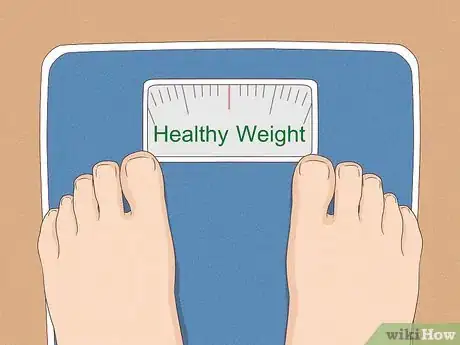
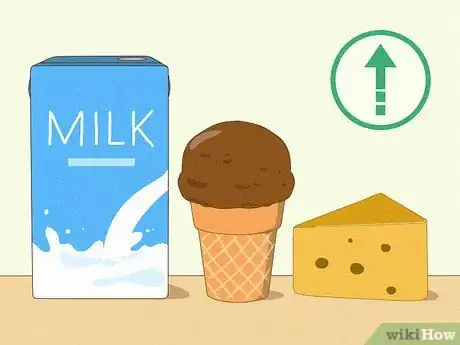
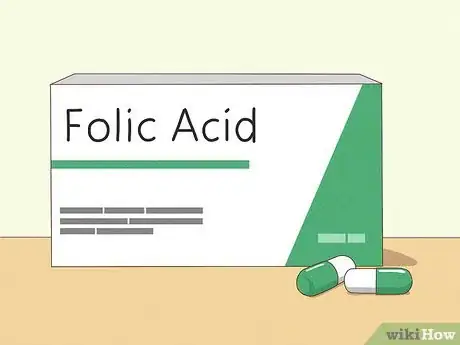
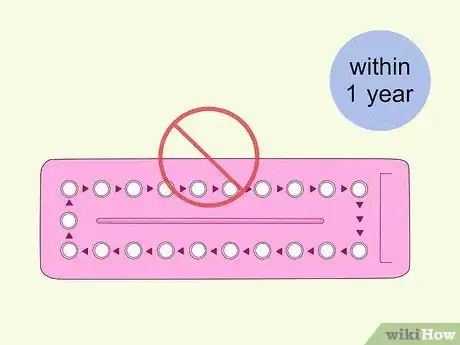
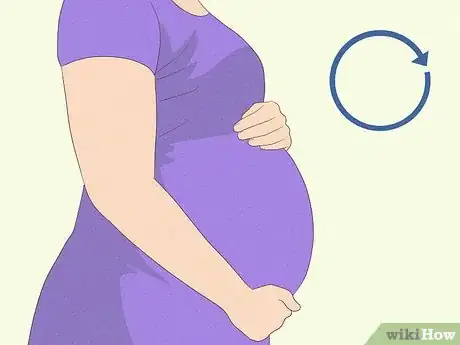

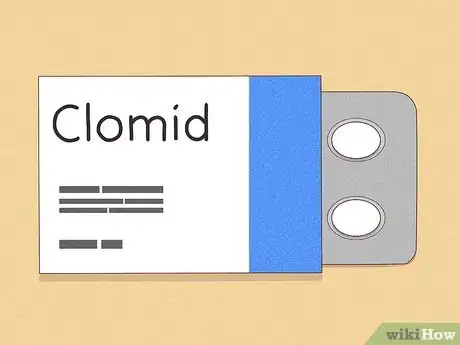

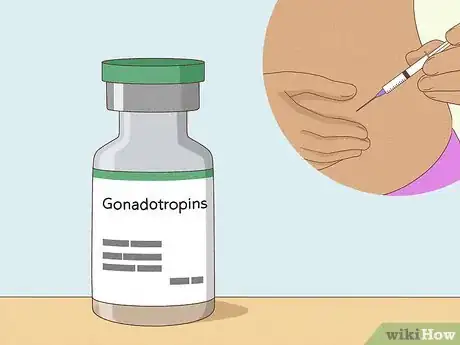
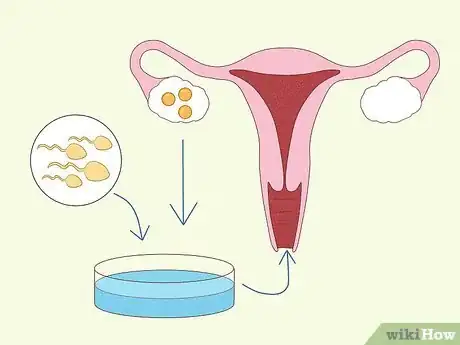




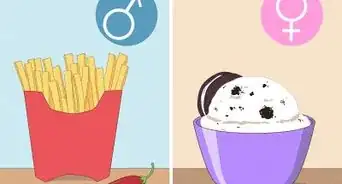
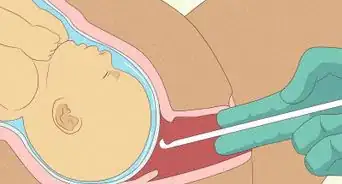




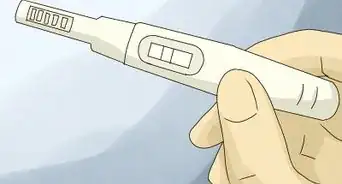
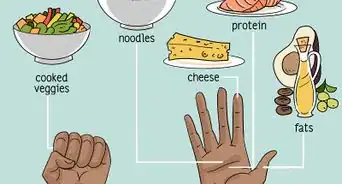
















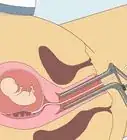



































Medical Disclaimer
The content of this article is not intended to be a substitute for professional medical advice, examination, diagnosis, or treatment. You should always contact your doctor or other qualified healthcare professional before starting, changing, or stopping any kind of health treatment.
Read More...